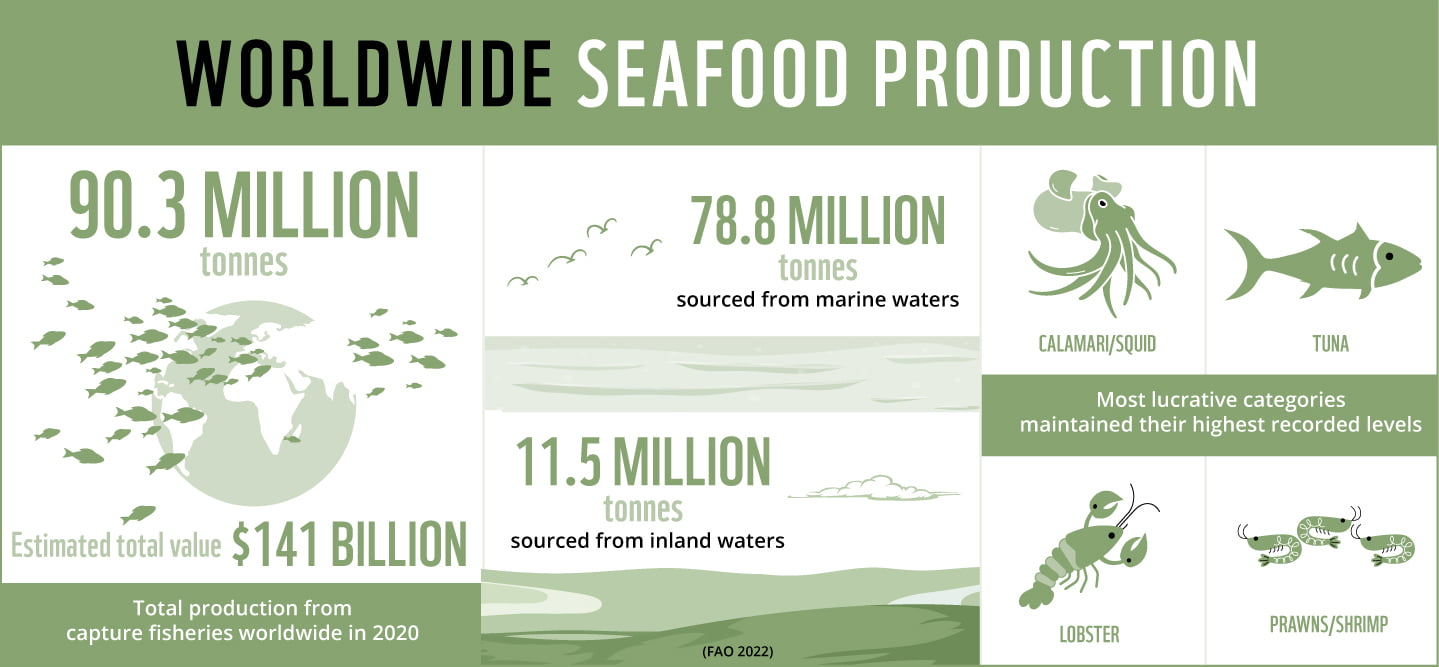Menu
This means working to improve fishing practices that are destructive to our ocean and encouraging fishers to use more sustainable methods. Destructive fishing practices include illegal, unreported and unregulated fishing (IUU), overfishing, bycatch and habitat destruction. Destructive aquaculture practices include having a large wild-caught feed ratio, species escapement and pollution runoff.
The WWF-SASSI programme encourages responsibly procured products, which in turn puts pressure on fishers and farmers to raise their standards to attain large-scale market access. WWF-SASSI collaborates with fisheries to assess and improve operations, reduce bycatch, and protect vulnerable marine species.
WWF-SASSI undertakes this work through tools such as Fishery Improvement Projects (FIPs) to achieve seafood & fishery sustainability standards that are required by certification schemes such as the Marine Stewardship Council (MSC).
This might sound complicated, but simply put, these projects are a sign of commitment to sustainable seafood. The WWF’s global fisheries programme, the Smart Fishing Initiative (SFI), has developed a detailed guide on FIPs and FCPs, including minimum requirements for WWF support and global recognition of these projects.
If you’d like to know more detail about local improvement initiatives, please contact us: [email protected]
WWF-SASSI enables its Retailer / Supplier Participation Scheme members to support fishery improvement projects, which allow for them to have market access to new species while working towards the conservation of species.
To do this, WWF South Africa has developed procurement guidelines for species that are important to the South African seafood market. WWF-SASSI Retailer / Supplier Participants can adopt these guidelines to ensure that their suppliers are implementing best available practices – regardless of the practices of the broader sector. Procurement guidelines are available for tuna, salmon, prawn and South African linefish.

Certified seafood allows consumers and businesses to make informed choices that support sustainable and responsible seafood production.
Certification often involves various stages of the seafood supply chain, including fishermen, processors, distributors, and retailers. Each link in the chain must meet the relevant certification standards. In addition, maintaining certification requires ongoing monitoring and assessment.
Local certification organisations include the Marine Stewardship Council (MSC) which focuses on sustainable fishing practices, and the Aquaculture Stewardship Council (ASC) which certifies responsible aquaculture operations. Other organisations may have their own specific criteria.
Quick links
© WWF SASSI | WordPress website design and development by The Ethical Agency, a leading Digital Marketing Agency for sustainable brands | Website powered by green renewable energy website hosting.